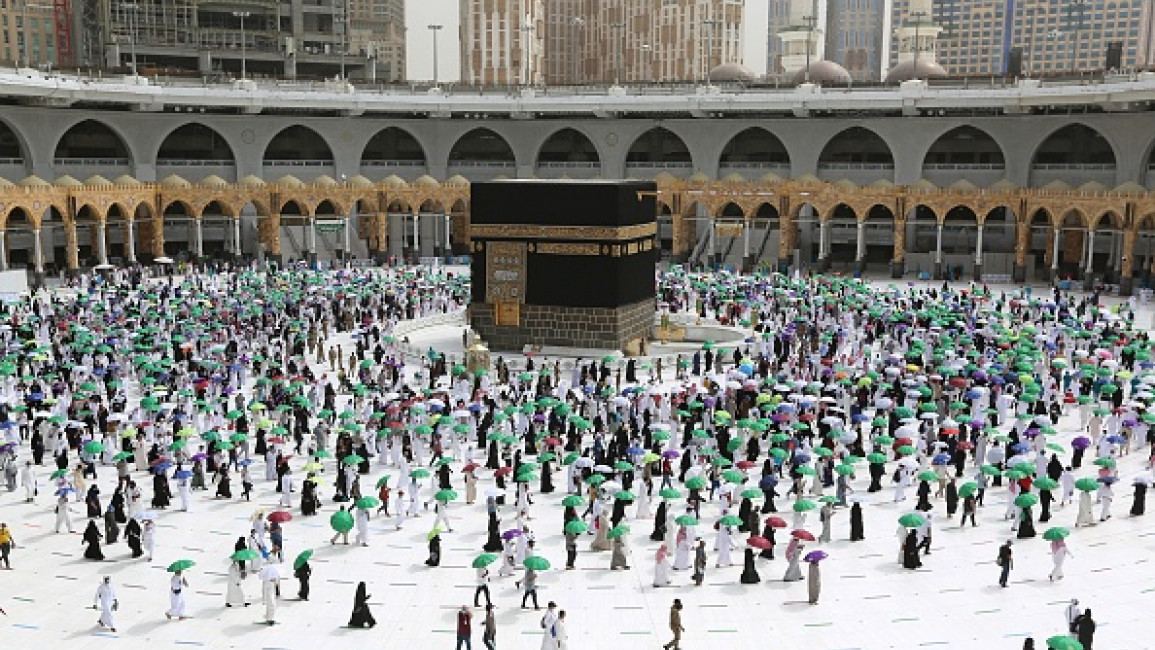Saudi adopts online registration for hajj to combat scams
Saudi Arabia has required would-be hajj pilgrims from many Western countries to apply for visas via a government portal online, a move intended to crack down on "fake" travel agencies, officials told AFP on Monday.
The new system was put in place as the kingdom prepares to welcome 850,000 Muslims from abroad for the annual hajj after two years during which pilgrims not already in Saudi Arabia were barred because of Covid pandemic restrictions.
It applies to the United States, Canada, the United Kingdom, Europe and Australia, said one of the officials, who spoke on condition of anonymity.
Previously, pilgrims could register via travel agencies that organised hajj trips, a system that sometimes led to scams, with "fake agencies" making off with victims' money, a second official said.
Saudi Arabia announced in April it would permit one million Muslims from inside and outside the country to participate in this year's hajj.
State media announced the online portal a week ago, and the registration period ended Monday, the hajj ministry said on Twitter.
Those who registered will be included in a lottery for hajj visas.
One official who spoke to AFP acknowledged that some Muslims in the affected countries may have already tried to register via travel agencies, before the online portal was announced.
He said they would also be included in the lottery - which has not been scheduled - provided they had booked via an agency accredited by the hajj ministry.
One of the five pillars of Islam, the hajj must be undertaken by all Muslims who have the means at least once in their lives.
It consists of a series of religious rites that are completed over five days in Islam's holiest city, Mecca, and surrounding areas of western Saudi Arabia.
It is due to begin in early July, and the first batch of foreign pilgrims since before the Covid-19 pandemic arrived from Indonesia just over a week ago.
Mask rules
The pandemic has hugely disrupted Muslim pilgrimages, which are usually key revenue earners for Saudi Arabia, bringing in some $12 billion annually.
Hosting the hajj is a matter of prestige and a powerful source of legitimacy for Saudi rulers.
In 2021, the coronavirus outbreak forced Saudi authorities to dramatically downsize the hajj for a second year, and just 60,000 fully vaccinated citizens and residents of the kingdom took part.
This year's pilgrimage will be limited to vaccinated Muslims under the age of 65, the hajj ministry has said.
Those coming from outside Saudi Arabia are required to submit a negative Covid-19 PCR result from a test taken within 72 hours of travel.
Saudi Arabia said Monday it would no longer require masks in most enclosed spaces, citing progress in fighting the pandemic.
However, masks will still be required in Mecca's Grand Mosque, which surrounds the Kaaba, towards which Muslims pray, and the Prophet's Mosque in Medina, where Prophet Mohammed is buried, according to a report published Monday by the official Saudi Press Agency, citing an interior ministry source.
Owners of establishments can also insist masks be worn if they wish, the report said, though mask-wearing has been sparsely enforced in recent months.
Since the start of the pandemic, Saudi Arabia has registered more than 778,000 coronavirus cases, more than 9,100 of them fatal, in a population of some 34 million.


![President Pezeshkian has denounced Israel's attacks on Lebanon [Getty]](/sites/default/files/styles/image_684x385/public/2173482924.jpeg?h=a5f2f23a&itok=q3evVtko)



 Follow the Middle East's top stories in English at The New Arab on Google News
Follow the Middle East's top stories in English at The New Arab on Google News


